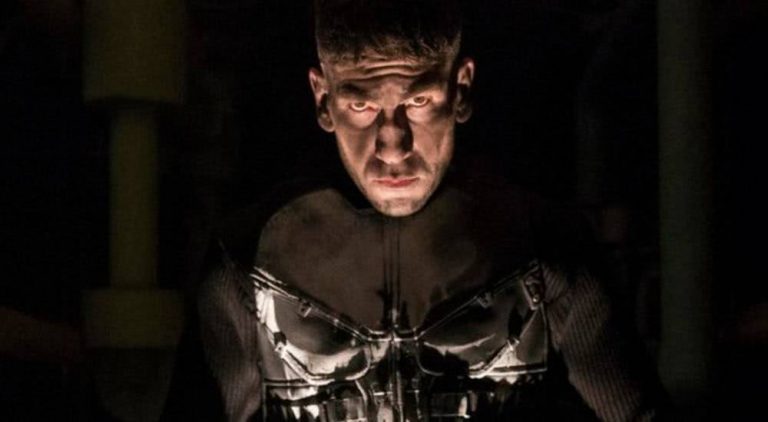People have always been divided over the comic book character known as The Punisher, and for good reason: after all, his entire existence is at odds with the “no kill” policy that superheroes are meant uphold. Debuting in 1974 and created by writer Gerry Conway and artists John Romita Sr. and Ross Andru, Frank Castle is a Vietnam veteran whose wife and children are taken from him when they’re caught in the crossfire of a mob gunfight. In response, Castle starts dressing all in black, paints a skull on his shirt and uses his military training to begin a one-man war on crime. In that way, he’s the ultimate revenge fantasy: a living, breathing vendetta.
Since his inception, The Punisher has appeared in dozens of comic series, along with a handful of film and television adaptations, with a variety of filmmakers and artists offering different interpretations on who the character is. The only constant seems to be that he is the “serious” superhero – although like all caped crusaders, there’s an inherent goofiness within him too.
The Punisher comics of the late ’80s to the mid ’90s are reminiscent of the kind of action movie schlockfests that would have starred John Claude van Damme or Dolph Lundgren back in the day (indeed, Lundgren would play Frank Castle in the 1989 The Punisher film).
https://www.youtube.com/watch?v=lIY6zFL95hE
Lexi Alexander’s direly underrated 2008 adaptation, Punisher: War Zone, leans hard into the B-movie concept of the character, and includes some of the most cartoonish violence ever committed to film. Even in the current Marvel universe, the Punisher is in the process of hunting down Hydra agents, Marvel’s Nazi analogues, while wearing one of Iron Man’s suits. He’s total B-movie schlock.
On the other end of the tone spectrum, in what is widely considered to be the definitive take on the character, the 2004 The Punisher comic book series written by Garth Ennis presents Frank Castle for what he truly is: a murderous monster that exists to forever out-monster the worst the world has to offer. In that way, Ennis uses Castle to explore how dehumanizing a life of death and violence can be.
Moreover, Ennis also uses The Punisher to deconstruct the American badass figure; the legendary macho male that’s a product of the country’s idolization of Old West gunslingers and the take-no-shit/play-by-their-own-rules action movie tough guys (both kinds of machismo grunt played by Clint Eastwood). Ennis’s take on The Punisher doesn’t get the cool Dirty Harry or John McClane one-liners. There’s no joy in what The Punisher does, because there shouldn’t be any joy. He’s a man doing a job, like a butcher working in an abattoir.
There’s an inherent hypocrisy to The Punisher: what separates Castle from the killers that he regularly mows down? He willingly uses the bad guy’s methods of violence, torture and murder – so what makes him different from them? The thing about The Punisher is that he’s morally infallible, frequently to the same degree that Captain America and Batman are. The Punisher never kills people who aren’t guilty, fighting against the exact same crowd of street-level villains as those heroes. The only difference is that he’s more than willing to take a life. The Punisher is a hero – but make no mistake. He’s also a monster.
There’s an inherent hypocrisy to The Punisher.
It’s why Navy SEAL sniper Chris Kyle and the countless other Marines who adorn their helmets and gear with The Punisher’s iconic skull logo totally miss the point of the character. By comparing themselves with The Punisher they are tacitly implying that they have the same level of moral righteousness – that everyone they kill is objectively guilty. Case in point? Earlier this year a Kentucky police officer removed a Punisher skull/Blue Lives Matter mash-up decal that he’d placed on the hood of his cruiser after receiving an overwhelming amount of complaints from citizens who were uncomfortable that an officer of the law was associating himself with a lawless killer.
It’s easy to write The Punisher off as a character whose primary fanbase is built from firearm obsessives and people who actively describe themselves as “edgy” (Netflix’s decision to set The Punisher trailer to Metallica’s ‘One’ is either too self-aware or not self-aware enough) – but I think that’s a shallow read that misses the point of the character. He isn’t a glorification of vigilantism and gun violence, but a vilification. He isn’t propaganda that proposes that all crime could be eradicated if everyone was given a gun, but proof of how fundamentally ridiculous that concept is.
The first season of The Punisher is available on Netflix now.


































